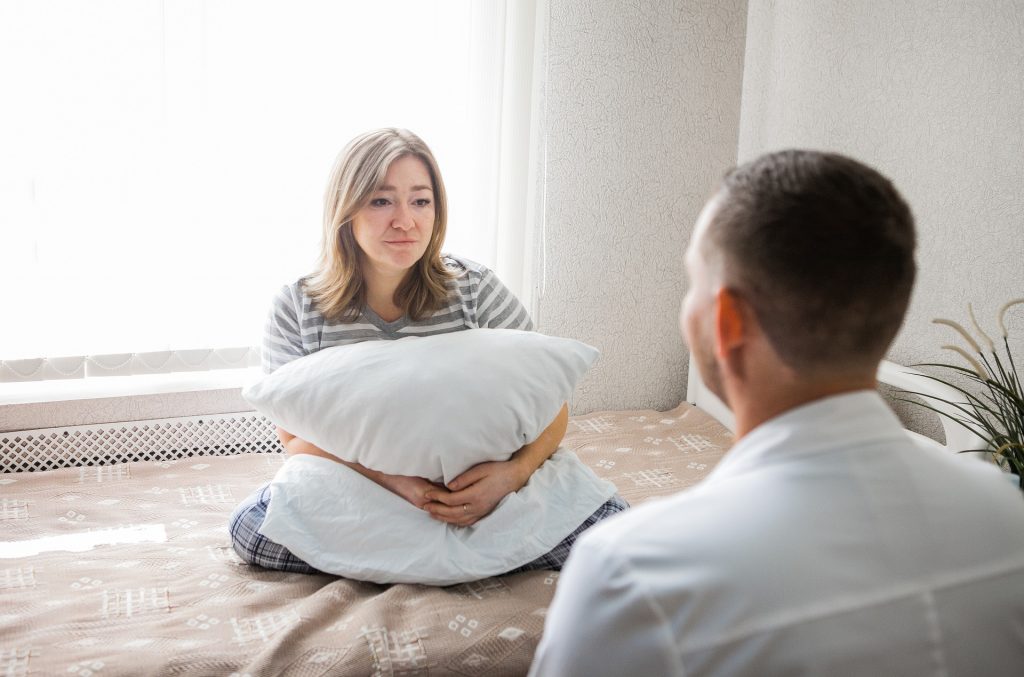10 Warning Signs of Depression in Teenagers

Hello, Psych2goers! I hope you’re staying safe and doing well.
The adolescent brain is very plastic. That is, teenagers and adolescents go through a huge developmental period in their brain during this time. These changes are also paired with life stress unique to adolescence and a brain that is not fully developed. This means that some mental health conditions, such as depression, may manifest differently in teenagers vs adults.
In this video, we’re going to explore some signs of depression in teens. Please note that, as always, these videos are made for educational purposes only and are never meant to diagnose. If you believe that you, or a teenager close to you, is suffering from depression, we encourage you to seek help from a mental health professional. With that said, here are 10 warning signs of depression in teenagers.
1. More irritability
The teenage brain is already prone to mood swings. With so much forming and changing, they can have a hard time regulating emotions as it is. And, with depression, these mood changes can heighten.
According to an article from Very Well Mind, irritability and defiance are much more common in depressed teens than depressed adults (Morin 2020). This may be because adults are generally more equipped to handle stronger emotions and are therefore less prone to acting out.
2. Sensitivity to criticism
Do you know a teenager who avoids taking risks in fear of criticism? This may be a result of increased sensitivity to criticism, which is common in teenage depression (Morin 2020).
It’s normal to be a little nervous about what someone might say. However, depressed teens may find themselves so afraid, that they avoid doing something they really love. Though the exact reason isn’t clear, this may have something to do with the lower levels of self confidence and self worth that come along with depression.
In any case, know that teens who find themselves in this spot aren’t just lazy or insecure–there’s so much more to the story.
3. Staying in their rooms a lot
Do you know a teenager who only seems to come out of their room for meals? Do they seem to disappear throughout the day? This may be a sign of depression.
A common sign of depression in adults and teens is social isolation (Mayo Clinic). For many teens, their rooms are primarily what they consider to be their space, and that tends to be where they isolate.
If you notice this in a teen around you, try not to take it personally. It’s not usually that they don’t want to see you or be around you, but more so that their depression may be forcing them to only feel at ease when they’re alone.
4. Selective social withdrawal
Do you know a teen who seems to withdraw from certain people, but not others? It turns out that depressed teens tend to socially withdraw more selectively than adults (Smith et al. 2020).
Typically, depressed teens might hold on to close friendships and relationships and isolate from family. Adults, by contrast, will tend to isolate an equal amount from most all of the relationships in their lives. Again, if you are close to a teen who begins to isolate you, please know that it’s neither your fault, nor their fault. Rather, it is likely a sign of depression or another mental health issue and not personal against you.
5. Throwing themselves into work
Do you know a teen who seems to bury themselves in schoolwork? Does it seem like they spend a long time working? There are multiple reasons for this, but among other things, this could be a sign of teenage depression.
Distraction is a common coping mechanism for depression, and teens often have a heavy plate of work. Thus, some of them resort to temporarily distracting themselves with assignments, even those that might not be due any time soon. Though distraction might work temporarily, it unfortunately doesn’t help in the long run (Health Talk 2017). Nonetheless, it might be a good indicator that something’s wrong.
6. Slipping grades
On the flip side, another common sign of depression in teens is that their grades might slip. On the outside, this may look like laziness, but this could be a sign of something bigger.
Schoolwork is demanding, and depression can take a toll on someone’s mental state. Therefore, if a teenager’s grades are slipping, it might be because depression is taking away the energy and motivation for them to do their best.
7. Harder time focusing
Do you, or does a teen you know, seem to have a harder time concentrating then normal? With anything from schoolwork to hobbies, a harder time focusing on everyday tasks could be a sign of teenage depression (Smith et al. 2020).
Depression can be very energy consuming, and as a result, many teens may find it harder and harder to concentrate–even on things that would normally capture their attention. Like other signs on this list, it’s important not to assume laziness if you notice this in yourself or in a teen around you. Difficulty concentrating could be a sign of not only depression, but a number of mental health issues in a teen that are not their fault.
8. Changes in energy
Does a teen close to you appear suddenly more restless or sluggish? Both of these changes in energy could be signs of depression.
According to Stanford Children’s Health, sluggishness in depressed teens shows up in their speech, reactions, and movement (Stanford Children’s Health). The same article explained that depression-related restlessness can look like “fidgeting or acting up” publicly (Stanford Children’s Health). Whatever the case may be, a consistent change in energy or out-of-character behavior could indicate an issue beneath the surface.
9. Changes in daily habits
Do you notice different eating or sleeping patterns in a teen? Similar to adults, changing in sleep and appetite are common signs of teenage depression.
Whether eating and sleeping too much or too little, teens with depression often find themselves taking less care of their health and well-being (Hopkins Medicine). Every once in a while, catching up on sleep or not feeling as hungry is totally normal. However, a consistent shift to unhealthy habits could be a sign of something larger.
10. Physical pains
Did you know that depressed teens tend to have more pronounced physical pain than depressed adults? According to Help Guide, depressed teens tend to be more impacted by aches and pains than depressed adults (Smith et al. 2020).
These physical pains can be anywhere in the body and seem spontaneous. Stomach aches, headaches, and cramping throughout the body are all equally possible (NIMH). If you or a teen you know continue to ache without any other physical condition, it could be a physical manifestation of depression.
We hope this article gave you some insight on common signs of teenage depression and how it may differ from depression in adults. Could you relate? Did we miss anything? Let us know. Thanks for reading!
References
- “Adolescent Depression”(N.d.). Hopkins Medicine. Adolescent Depression Awareness Program. David Raymond Price Foundation. Retrieved from www.hopkinsmedicine.org/psychiatry/specialty_areas/moods/adap/docs/adap-booklet_final.pdf.
- “Depression: distraction, activities, and creativity” (2017, Sept.). Health Talk. Depression. Retrieved from www.healthtalk.org/depression/depression-distraction-activities-and-creativity.
- Morin, A (2020, May 05). “How Teenage Depression Differs From Adult Depression”. Very Well Mind. Janssen, A, reviewed by. Retrieved from www.verywellmind.com/how-teenage-depression-differs-from-adult-depression-2608882.
- Smith M, Robinson L, Segal J (2020, Sept.). “Parent’s Guide to Teen Depression”. Help Guide. Depression. Retrieved from www.helpguide.org/articles/depression/parents-guide-to-teen-depression.htm.
- “Teen Depression” (N.d.). National Institute of Mental Health. Retrieved from www.nimh.nih.gov/health/publications/teen-depression/index.shtml.
- “Understanding Teenage Depression” (N.d.). Stanford Children’s Health. Stanford Medicine. Retrieved from www.stanfordchildrens.org/en/topic/default?id=understanding-teenage-depression-1-2220.



Responses